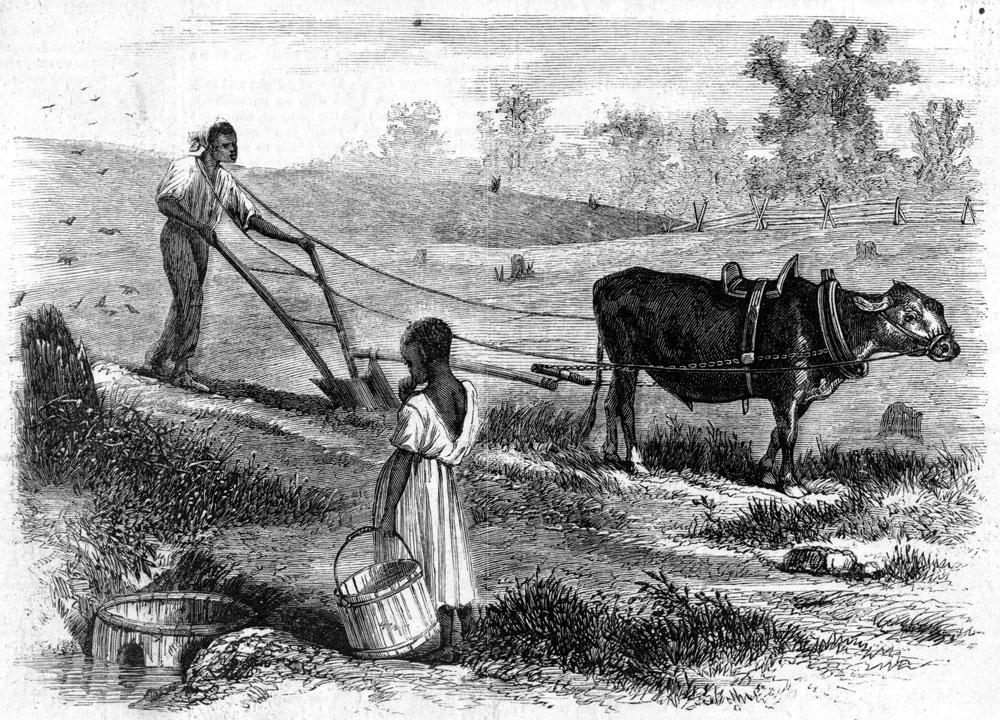I used Reconstructing the South as a two-day lesson, following our study of slavery, the 1850s, and the Civil War.
I was tremendously impressed by the quality of thought the students gave to the assignment and the discussions they had. (As an aside, I also really liked the concept of letting them determine what shape to give the discussion. I was really impressed that they ran a completely self-sustaining discussion for 45 minutes in every period, while I just typed notes madly.)
In addition to showing some significant empathy for the plight of the freedmen, students also brought up a wide range of issues that, to them, fit into the topic: The need for a minimum wage, possible impacts on child laborers, the politics behind women’s suffrage, second amendment rights, whether soldiers should remain on duty or be able to return to families, and much, much more. This really provided a terrific basis for the Reconstruction discussions that will follow.
Here are some of my favorite responses:
Chloe (on who could own land): Freed slaves should get three-fifths of the available land in the South because, for one, that’s ironic and also because there are more slaves than plantation owners.
Brianna (on a promise to grow cotton on the land): I would not be willing to have to grow cotton on my land because it’s like we’re being controlled by our equals.
Arielle (on that promise): At first I kind of agreed they should stay on the plantations. Now I’m second-guessing myself. It seems like slavery without slavery. The former slaves should be able to grow what they want and not be tied down by other people’s ideas.
Momin (on punishing confederate leaders): [We should punish them] because they were the ones who seceded and started the war. Lincoln said that if we have to shed the same blood that slave masters caused in slaves, then so be it. I don’t think we have done that yet.
Dax (on voting rights): Everyone should be able to vote because the reason for voting is to determine what the people in the United States want, and those decisions will affect everyone in the United States.







Twitter
Google plus
LinkedIn